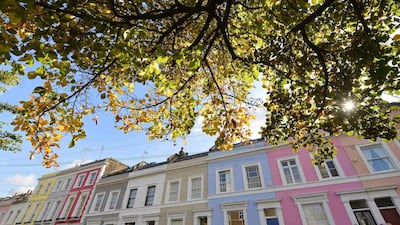UK property prices stagnated in July as a slump in London values spread to neighbouring areas, according to the Royal Institution of Chartered Surveyors (Rics).
After months of decline in the London housing market, largely due to prime properties in the centre of the city, prices in England’s south-east had their worst performance since 2011, Rics said in a survey published Thursday.
Nationwide, Rics said its price gauge fell its lowest level in more than four years, despite increases in Northern Ireland, the West Midlands and the south-west. Over the next 12 months, respondents expect prices to rise, though they were the least optimistic in a year.
“Sales activity in the housing market has been slipping in the recent months and the most worrying aspect of the latest survey is the suggestion that this could continue for some time to come,” said Simon Rubinsohn, the Rics chief economist.
_______________
Read more:
UK’s worst property market set up for another beating
Recovery in prime London property expected to overcome ‘hard Brexit’ fears
Global housing rent comparison: what $40,000 a year gets you in top cities around the world
_______________
The report is the latest to show the housing market has slowed considerably in the past year, with price inflation cooling and mortgage demand slipping. Much of the weakness centres on a change of fortune for the most expensive homes. According to the Rics survey, for homes marketed at more than £1 million (Dh4.7m) per cent of respondents said asking prices had been cut in the past two months. For properties below £500,000, the proportion was 37 per cent.
The economy has also cooled, with the Bank of England downgrading its growth outlook this month and saying that Brexit uncertainty is taking a toll. Separate reports in the past week showed both consumer spending and house-price growth were in their worst slump since early 2013.
In the survey, while respondents disagreed over whether Brexit was to blame for the faltering housing market, Rics said political uncertainty was playing a part. The main problem is a shortage of homes for sale, although muted interest from buyers and the aftermath of tax changes last year were also to blame.
On Monday, a report from Halifax showed house prices slipped 0.2 per cent in the three months through July, a fourth consecutive quarterly decline. That left the annual pace of growth at just a fifth of its 2016 peak.

